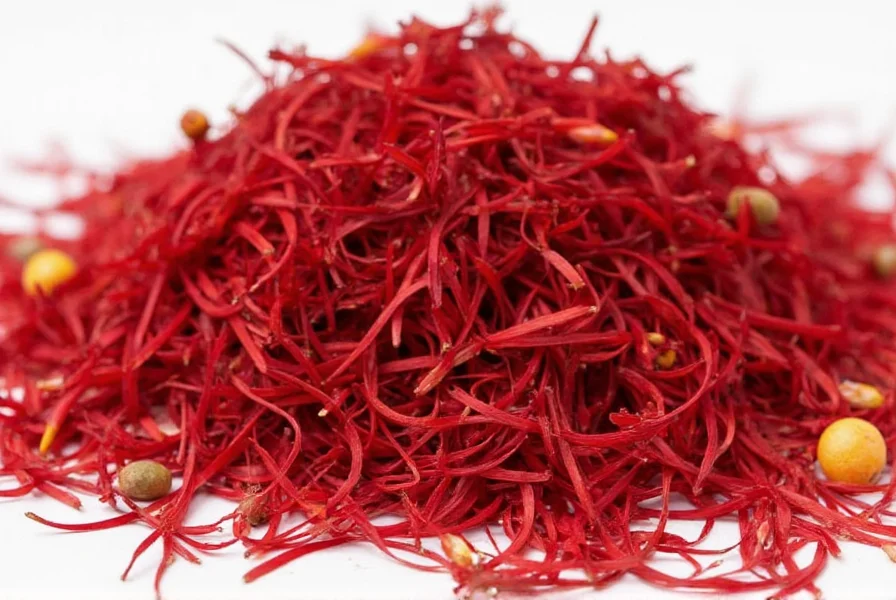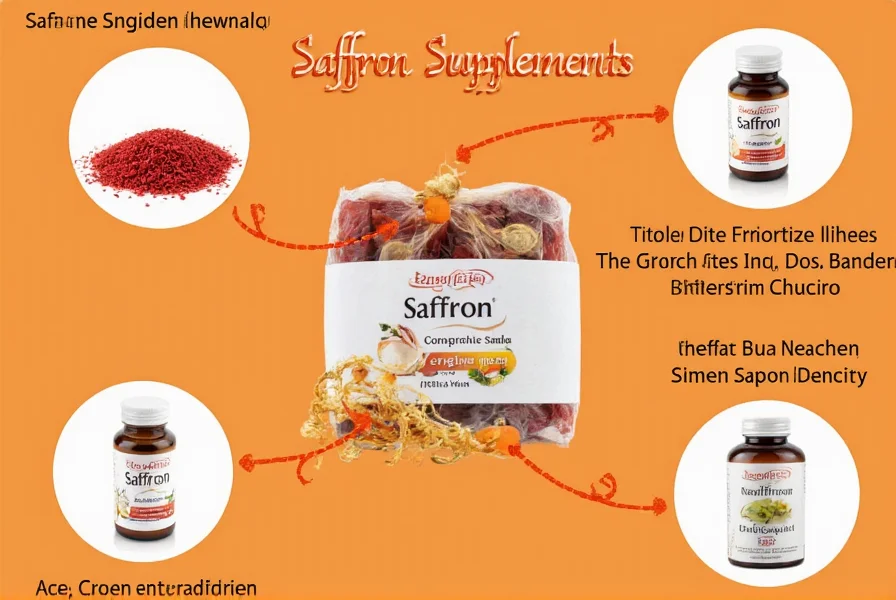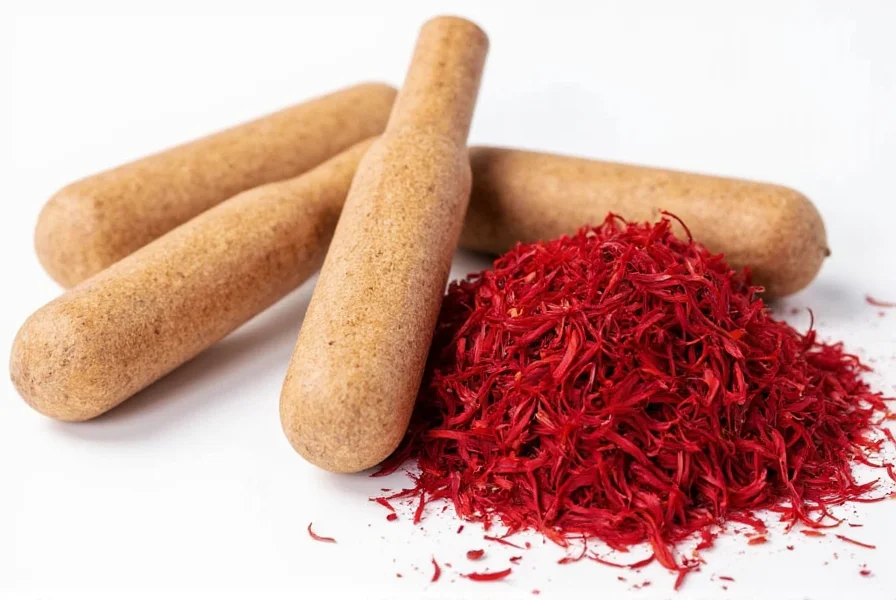Saffron supplements have gained significant attention in evidence-based nutrition for their potential health benefits. As one of the world's most expensive spices by weight, saffron contains bioactive compounds that may offer therapeutic effects when properly extracted and standardized. This comprehensive guide examines what current scientific research reveals about saffron supplementation, separating evidence-based findings from marketing claims.
Understanding Saffron and Its Active Components
Saffron comes from the dried stigmas of the Crocus sativus flower. The three primary bioactive compounds responsible for saffron's potential health effects are:
| Compound | Concentration in Quality Supplements | Primary Functions |
|---|---|---|
| Crocin | 1-2% (standardized) | Antioxidant properties, may support cognitive function |
| Crocetin | Naturally occurring metabolite | May enhance oxygen diffusion in tissues |
| Safranal | 3-5% (standardized) | Primary aroma compound, may support mood regulation |
The effectiveness of saffron supplements largely depends on these compounds' concentration and bioavailability. High-quality supplements typically standardize for both crocin and safranal content, as research suggests these work synergistically.

Evidence-Based Health Benefits of Saffron Supplements
Unlike many supplements with limited research, saffron has been the subject of numerous clinical trials. Let's examine what the evidence actually shows:
Mood Support and Depression Management
Among the most well-researched applications, saffron supplements for depression have shown promising results. Multiple randomized controlled trials indicate that 15-30mg daily of standardized saffron extract demonstrates comparable efficacy to conventional antidepressants for mild to moderate depression, with fewer side effects. The mechanism appears related to safranal's influence on serotonin, dopamine, and norepinephrine systems.
A 2022 meta-analysis published in Phytotherapy Research concluded that saffron supplementation significantly reduced depression scores compared to placebo (standardized mean difference -0.69, 95% CI -0.95 to -0.43). This represents one of the strongest evidence bases among natural mood support supplements.
Eye Health and Age-Related Vision Support
Research suggests saffron supplements may help maintain retinal function and visual acuity. The carotenoid compounds in saffron, particularly crocin, appear to protect photoreceptor cells from oxidative damage. Studies indicate potential benefits for:
- Age-related macular degeneration (AMD) progression
- Retinal blood flow improvement
- Visual acuity maintenance in early-stage AMD
A six-month clinical trial with 29 participants showed that 20mg daily of saffron extract improved retinal function as measured by electroretinography, with effects becoming noticeable after approximately three weeks of consistent use.
PMS and Menstrual Symptom Management
Saffron extract benefits extend to women's health, particularly for premenstrual syndrome (PMS). Research demonstrates that 30mg daily of saffron during the luteal phase significantly reduces both physical and psychological PMS symptoms compared to placebo.
The mechanism likely involves saffron's influence on serotonin pathways and its anti-inflammatory properties. One study found that women taking saffron reported 50% fewer mood-related symptoms and 30% reduction in physical symptoms like bloating and cramps.
Recommended Dosage and Usage Guidelines
Based on current research, effective saffron supplement dosage varies by application:
- Mood support: 15-30mg daily of standardized extract (3-5% safranal, 1-2% crocin)
- Eye health: 20mg daily of standardized extract
- PMS management: 30mg daily during luteal phase (days 15-28 of menstrual cycle)
Most clinical studies show effects becoming noticeable after 4-8 weeks of consistent use. Taking saffron supplements with food may enhance absorption of its fat-soluble compounds.
Safety Profile and Potential Side Effects
Saffron supplement side effects are generally mild when taken at recommended doses. The most commonly reported issues include:
- Mild digestive discomfort (nausea, appetite changes)
- Dry mouth
- Mild anxiety or restlessness in sensitive individuals
More serious concerns arise at higher doses. Consuming more than 1.5g daily may cause toxic effects, while doses exceeding 5g can be potentially fatal. Pregnant women should avoid saffron supplements in medicinal doses as it may stimulate uterine contractions.
Medication Interactions to Consider
Saffron supplements safety profile includes several important medication interactions:
- Antidepressants: May increase risk of serotonin syndrome when combined with SSRIs or MAOIs
- Blood thinners: Saffron may enhance anticoagulant effects of medications like warfarin
- Antihypertensives: May potentiate blood pressure-lowering medications
- Sedatives: May enhance effects of CNS depressants
Individuals taking any prescription medications should consult with a healthcare provider before starting saffron supplementation.

Choosing Quality Saffron Supplements
Given the significant price of genuine saffron, the supplement market contains many inferior or adulterated products. When selecting saffron supplements, look for:
- Standardization for both crocin (1-2%) and safranal (3-5%) content
- Third-party testing verification (USP, NSF, ConsumerLab)
- Clear indication of Crocus sativus as the source
- Manufactured by reputable companies with transparent sourcing
- Free from unnecessary fillers and additives
Avoid products that seem unusually cheap, as genuine saffron extract requires significant amounts of the raw spice to produce. High-quality saffron supplements typically cost $30-$50 for a one-month supply.
Limitations of Current Research
While promising, saffron supplement research has several limitations worth noting:
- Most studies have relatively small sample sizes (under 100 participants)
- Long-term safety data beyond 6-12 months is limited
- Optimal formulations and delivery methods still being researched
- Individual response variability hasn't been thoroughly studied
- Most research comes from Mediterranean and Middle Eastern countries where saffron is traditionally used
More large-scale, long-term studies conducted in diverse populations are needed to fully understand saffron's therapeutic potential and limitations.
Conclusion
Saffron supplements represent one of the better-researched natural interventions for mood support, eye health, and PMS management. When selecting saffron extract supplements, prioritize products with standardized active compounds from reputable manufacturers. While generally safe at recommended doses, they may interact with certain medications and aren't appropriate for everyone. As with any supplement, manage expectations—saffron works gradually and as part of a comprehensive health approach, not as a quick fix. Consult with a healthcare provider to determine if saffron supplementation aligns with your individual health needs and circumstances.
Frequently Asked Questions
How long does it take for saffron supplements to work for depression?
Most clinical studies show noticeable mood improvements after 4-6 weeks of consistent daily use at 15-30mg of standardized extract. Some individuals report subtle changes within 2-3 weeks, but full effects typically require 6-8 weeks of regular supplementation. This gradual timeline aligns with how many conventional antidepressants work, as saffron appears to influence similar neurotransmitter pathways.
Can I take saffron supplements with my antidepressant medication?
Combining saffron supplements with antidepressant medications requires medical supervision due to potential interactions. Saffron may increase serotonin levels, which could theoretically lead to serotonin syndrome when combined with SSRIs or MAOIs. Some studies have safely combined saffron with antidepressants under medical supervision, but you should never combine these without consulting your healthcare provider who knows your specific medication regimen.
What's the difference between saffron extract and whole saffron supplements?
Saffron extract supplements contain concentrated bioactive compounds (crocin, crocetin, safranal) standardized to specific percentages, while whole saffron supplements typically contain powdered saffron threads without standardization. Research showing therapeutic benefits has primarily used standardized extracts providing consistent doses of active compounds. Whole saffron supplements may contain inconsistent amounts of active ingredients and would require impractically large doses (several grams) to achieve the same effects as 15-30mg of standardized extract.
Are saffron supplements safe for long-term use?
Current evidence suggests saffron supplements are safe for long-term use at recommended doses (15-30mg daily of standardized extract) for most people. Studies have monitored participants for up to 12 months without reporting serious adverse effects. However, comprehensive safety data beyond one year is limited. Individuals using saffron supplements long-term should periodically consult with a healthcare provider and consider taking occasional breaks to assess whether continued supplementation remains necessary.
How do I verify if my saffron supplement contains adequate crocin content?
To verify crocin content in saffron supplements, look for products that specify 'standardized to X% crocin' on the label (typically 1-2%). Reputable manufacturers will provide third-party testing documentation upon request. You can also check for certification from independent testing organizations like USP, NSF, or ConsumerLab. Avoid products that only list 'saffron extract' without specifying crocin or safranal percentages, as these likely contain inconsistent and potentially ineffective amounts of active compounds.











 浙公网安备
33010002000092号
浙公网安备
33010002000092号 浙B2-20120091-4
浙B2-20120091-4